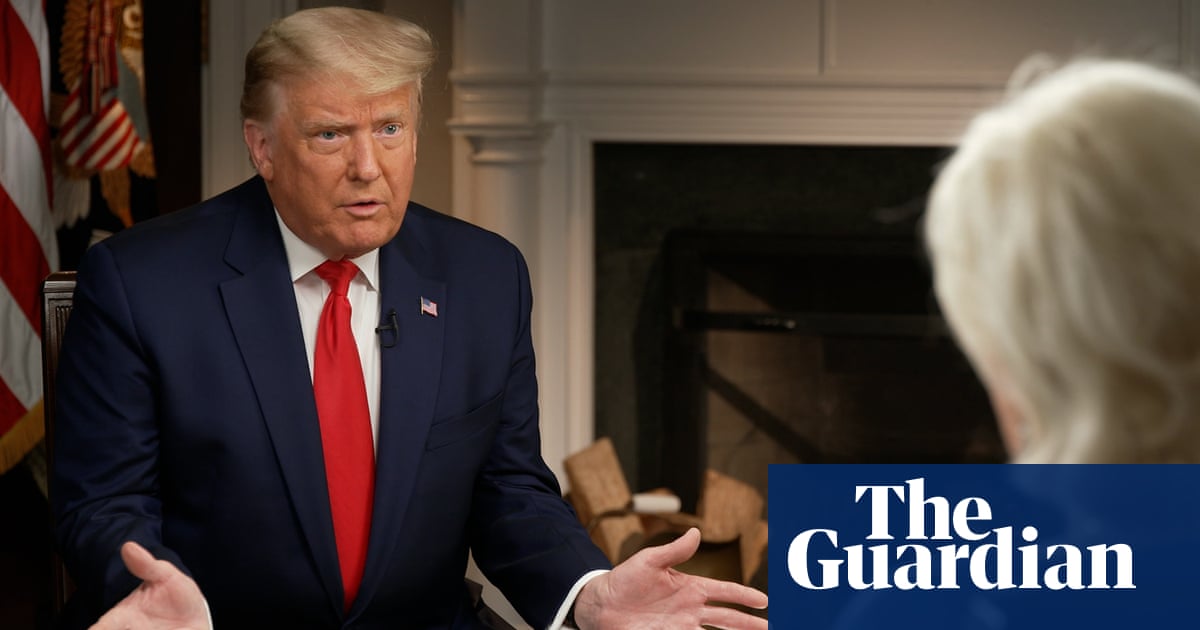In retrospect, the weeks between the election and Donald Trump’s first executive order seem like a phoney war. Everyone knew that something bad was about to happen, but there was still a sense it might not be so bad. After all, Trump’s first four years had been less terrible than observers predicted. That was always a mistake: aspiring autocrats are most dangerous when they come to power a second time. But even those bracing for shocks could hardly have expected Trump to be so blatantly lawless and destructive once back in office. This approach – sabotage bureaucracies, violate the constitution, then see what happens – might now be applied to education.
Trump’s choice of education secretary, pro-wrestling billionaire Linda McMahon, seemed positively harmless compared with figures like the walking talking threat to public health known as Robert F Kennedy Jr. Though she has an accusation of having enabled the sexual abuse of young boys in the wrestling world hanging over her, McMahon denies all wrongdoing.
At least unlike Trump’s first education secretary, Betsy DeVos, McMahon seemed to have no particular investment in charter schools and predatory for-profit colleges. Perhaps nothing worse might happen than a push for conventional Republican policies, in particular voucher schemes that end up helping wealthier parents who are already sending their children to private schools.
True, Trump’s executive orders also affirmed a desire for more “patriotic education”, possibly based on another amateur whitewashed American history as first formulated by his ill-fated 1776 commission. But these are no more than bombastic sounding wishlists: the federal government does not control curricula and most spending on education is local or strictly determined by Congress.
Yet, the surprise is that Trump has not pursued the strategy familiar from other far-right populists in power, namely what scholars call “autocratic legalism”: observe formal procedures when legislating, but violate the spirit of the law and, ultimately, the constitution, as you pursue a relentless concentration of power. Despite the Republican control of all branches of government, Trump (and Elon Musk) have opted for a strategy of chaos, sabotage and evident lawlessness: destroying USAid and quite possibly now trying the same with the Department of Education.
As lawyers have been shouting from the rooftops, departments cannot be undone by executive order; Congress needs to act. That was one reason why some observers suggested sitting back and relaxing before Trump came back into office; after all, he had threatened to kill the Department of Education before. In fact, the Republican party has been committed to the idea ever since the 1980s.
Yet, Trump clearly feels emboldened to adopt the conduct long familiar from his businesses: just see how far you can push and see who will really sue. Of course, the imperative – break things, and if they were really important, someone else will put them back together – is also part of the worldview of his new Silicon Valley allies. And Trump might be forgiven for thinking that, after years of never having been held to account for anything – from allegedly inciting an insurrection to mishandling documents – he is the most unconstrained president ever.
Courts might eventually put a stop to Trump’s sabotage of the American state. His administration might just disaggregate some of the functions of the Department of Education, let private actors take over loans and the states be responsible for special education (all of which will make the most vulnerable kids worse off), plus get rid of whatever Musk happens not to like on a particular day and then declare victory. But a lot of damage will have been done, including the intimidation of plenty of administrators in colleges and universities and possibly schools, which will do Trump’s bidding even in the absence of valid laws. Florida has set the example; and in the face of legal uncertainty, many adapt and self-censor.
One executive order instructed the justice department to initiate a compliance investigation of a private institution of higher education with an endowment of more than $1bn. Deans may well be inclined to obey in advance and abolish anything smacking of diversity, equity and inclusion (DEI) – which like critical race theory, has now been redefined into an all-purpose political weapon. The spending freeze of National Science Foundation grants, possibly followed by a devastating attack on the institution itself through mass layoffs and the scramble to find the tiniest traces of DEI in existing projects – such as, God forbid, the word “women” – will have a major chilling effect.
Trump does not have the authority fundamentally to reorient education; but, as we have by now seen, lack of authority does not equate to refraining from power grabs. The shock-and-awe tactics could further radicalize rightwing activists; civil rights enforcement in schools and universities over which Trumpists will have control might be both weakened and weaponized. One thing is sure: as with USAid, Trump’s actions manage to inflict harm on many individuals and cause major national self-harm at the same time.
-
Jan-Werner Müller is a professor of politics at Princeton University and is a Guardian US columnist

 German (DE)
German (DE)  English (US)
English (US)  Spanish (ES)
Spanish (ES)  French (FR)
French (FR)  Hindi (IN)
Hindi (IN)  Italian (IT)
Italian (IT)  Russian (RU)
Russian (RU)  3 hours ago
3 hours ago























Comments